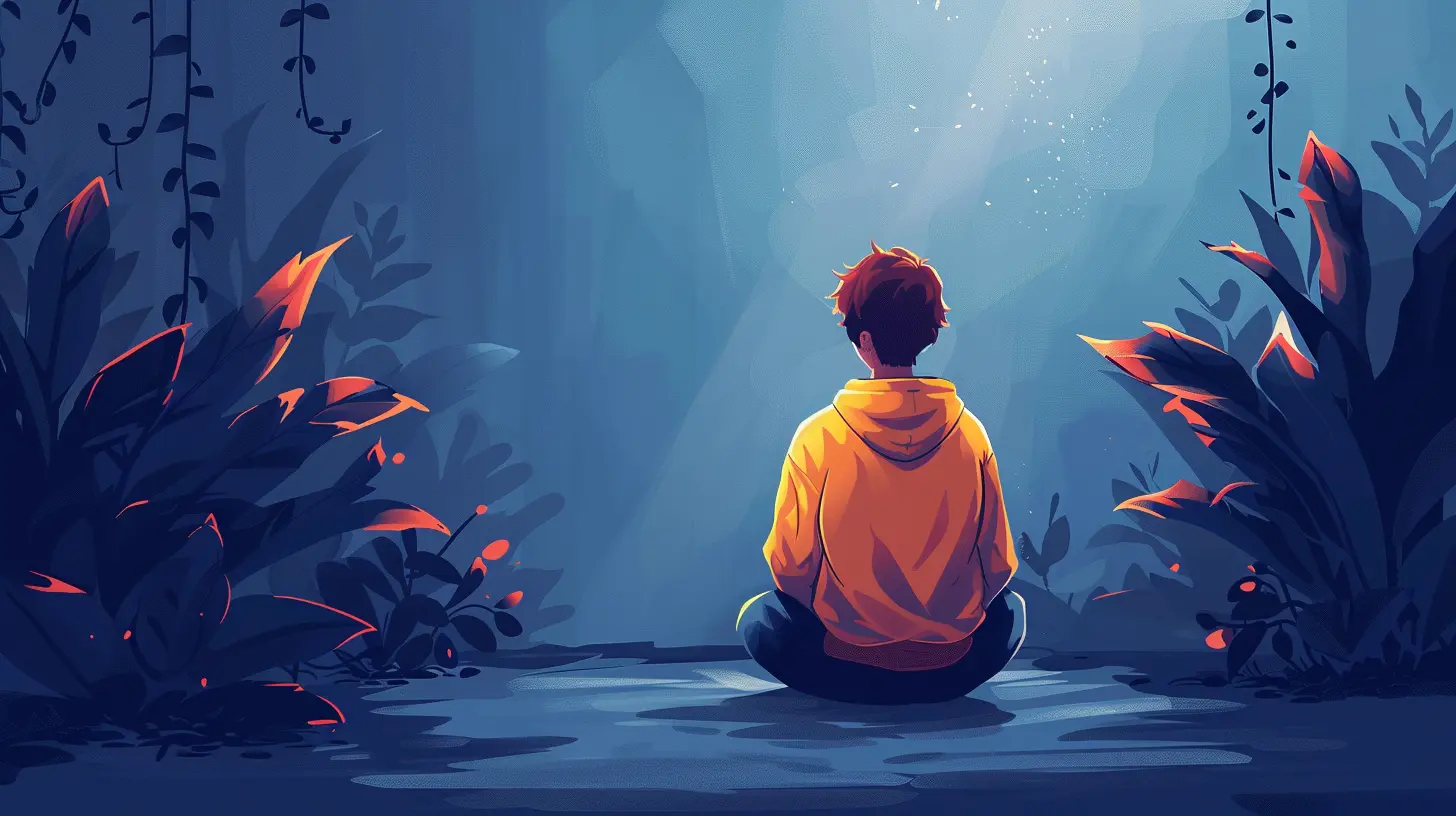The Impact of Loneliness on Mental Health and How to Deal with It
26 May 2025
Loneliness. We’ve all felt it at some point in our lives. It’s that nagging feeling of isolation, as if you’re stuck in a room full of people yet somehow still feel entirely alone. But what if I told you that loneliness goes beyond just a fleeting emotion? It can deeply affect your mental health if left unchecked.
In today’s world, where technology allows us to be more connected than ever, it seems ironic that so many of us are struggling with feelings of loneliness. Let’s dive into the impact loneliness can have on mental health and, more importantly, how you can tackle it head-on.

What Is Loneliness?
Before we talk about its impact, let's first define what loneliness truly is. Loneliness isn't about how many people you have around you or the number of social interactions you have. It’s about the quality of those interactions. You can be surrounded by people but still feel incredibly lonely because you’re missing meaningful connections.It’s not just physical isolation that causes loneliness, it’s emotional isolation too. You might have friends, family, or coworkers, but if you don’t feel understood or valued, that sense of isolation can creep in. And here’s the thing: we’re social creatures at heart. We crave belonging and connection. When we don’t get that, it can have a profound impact on our mental well-being.

The Link Between Loneliness and Mental Health
Loneliness might start as a dull ache in your chest, but over time, it can evolve into something much more damaging. Research has shown that chronic loneliness can lead to a variety of mental health issues, including:1. Depression
Loneliness and depression often go hand-in-hand. When you’re lonely, it's easy to spiral into negative thinking patterns. You might start to believe that no one cares about you or that you’re not worthy of love or companionship. These thoughts can quickly contribute to depression, making it even more challenging to reach out and connect with others.2. Anxiety
Loneliness often fuels feelings of anxiety. You may start to worry excessively about social situations or fear being judged by others. This can lead to avoidance behaviors, where you withdraw even further from social interactions, only intensifying the loneliness.3. Sleep Disturbances
When you're lonely, your mind often races at night, replaying interactions and worrying about the future. This can lead to insomnia or poor-quality sleep. And as we all know, poor sleep can exacerbate mental health issues like depression and anxiety, creating a vicious cycle that’s hard to break.4. Cognitive Decline
Studies have shown that loneliness, especially in older adults, can contribute to cognitive decline. Isolation can limit mental stimulation, leading to memory problems and an increased risk of conditions like dementia.5. Increased Stress Levels
Loneliness can trigger the body’s stress response, leading to higher levels of cortisol, the stress hormone. Over time, this can contribute to more serious physical health problems like high blood pressure, heart disease, and weakened immune function. It’s a reminder that mental health and physical health are deeply connected.
The Vicious Cycle of Loneliness
Here’s the tricky part: loneliness feeds itself. When you feel lonely, you may start to withdraw from social situations, either because you’re afraid of rejection or because you’ve convinced yourself that no one understands you. The more you isolate yourself, the lonelier you become, and the harder it gets to break that cycle.It’s a downward spiral. You feel lonely, so you avoid people. But avoiding people only makes you feel lonelier. It’s like being trapped in quicksand; the more you struggle to escape, the deeper you sink.

How to Deal with Loneliness: Practical Tips
Now, I know what you’re thinking: “Okay, great. I get that loneliness is bad for me, but what can I actually do about it?” I’m glad you asked. The good news is that there are plenty of ways to combat loneliness and improve your mental health. It’s not always easy, but with a little effort and consistency, you can start to break the cycle.1. Acknowledge Your Feelings
The first step to dealing with loneliness is admitting that you’re feeling it. This might sound simple, but many of us are quick to brush off our emotions or distract ourselves with busy schedules. Take a moment to sit with your feelings and recognize that it's okay to feel lonely sometimes. It doesn’t make you weak or flawed.2. Reconnect with Old Friends
Sometimes, all it takes is reaching out to someone you’ve lost touch with. Whether it’s an old friend, a family member, or a former colleague, reconnecting with someone you already know can be less intimidating than making new friends. It’s a great way to re-establish meaningful connections that you might have neglected.3. Join a Group or Community
One of the best ways to combat loneliness is by surrounding yourself with people who share your interests. Whether it’s a book club, sports league, or creative class, joining a group gives you a built-in way to meet new people and form connections. Plus, having a common interest makes it easier to bond with others.4. Volunteer
Helping others can be a powerful way to lessen feelings of loneliness. Volunteering not only connects you with a cause you care about, but it also brings you into contact with like-minded people. And the sense of purpose and fulfillment that comes from giving back can improve your overall well-being.5. Practice Self-Compassion
It’s easy to be hard on yourself when you’re feeling lonely. You might think, “Why don’t I have more friends?” or “What’s wrong with me?”. But remember, everyone feels lonely at times, and it doesn’t mean there’s anything wrong with you. Practice self-compassion by treating yourself with the same kindness and understanding you’d offer a close friend.6. Limit Social Media
Social media can be a double-edged sword when it comes to loneliness. On one hand, it allows us to stay in touch with people, but on the other hand, it can lead to feelings of inadequacy and FOMO (fear of missing out). If you find yourself comparing your life to others on social media, it might be time to take a step back and focus on real-life interactions.7. Seek Professional Support
Sometimes, loneliness is deeply rooted in past trauma, low self-esteem, or mental health conditions like depression and anxiety. If you’re struggling to break the cycle of loneliness on your own, it might be time to talk to a therapist. Therapy can help you process your feelings, identify roadblocks, and develop strategies to improve your social connections.The Role of Technology in Loneliness
Technology has given us the ability to stay connected at the click of a button, but it’s also played a role in increasing loneliness. How? Well, think about it. We’re constantly checking our phones, scrolling through social media, and sending quick texts, but how often are we having meaningful conversations?While technology can be a great tool for staying in touch, it can’t replace genuine face-to-face interactions. It’s important to strike a balance between online connections and real-life relationships. Video calls and voice messages can be more personal than just texting, so try to incorporate these into your communication habits.
The Positive Side of Solitude
Before we wrap things up, I want to make an important distinction: loneliness and solitude are not the same thing. While loneliness is a feeling of isolation, solitude can be a positive and enriching experience. Spending time alone can give you the space to reflect, recharge, and focus on your personal growth.The key is balance. Embrace solitude when it serves you, but be mindful of when it starts to tip into loneliness. If you find yourself feeling disconnected from others or longing for companionship, it’s time to reach out.
Final Thoughts
Loneliness can have a significant impact on your mental health, but it doesn’t have to define you. By acknowledging your feelings, taking proactive steps to connect with others, and seeking help when needed, you can break the cycle of loneliness and improve your overall well-being.Remember, you’re not alone in feeling lonely. Everyone experiences it from time to time, and it’s a completely natural part of the human experience. But with the right tools and mindset, you can turn things around and start forming the meaningful connections you crave.
all images in this post were generated using AI tools
Category:
Mental Health AwarenessAuthor:

Eliana Burton
Discussion
rate this article
2 comments
Vesper McKale
This article beautifully captures the profound effects of loneliness on mental health. It’s a powerful reminder of our need for connection. The strategies outlined offer hope and practical steps for those struggling, making it a must-read for anyone feeling isolated.
June 11, 2025 at 3:09 AM

Eliana Burton
Thank you for your thoughtful comment! I'm glad you found the article impactful and that the strategies resonate with you. Connection is indeed vital for our well-being.
Dana Sullivan
This article raises intriguing questions about the complexities of loneliness and its effects on mental health. How do different social connections influence our emotional well-being? I'm curious if certain strategies for combating loneliness are more effective than others, and what role self-compassion plays in this dynamic. Great read!
June 4, 2025 at 4:49 AM

Eliana Burton
Thank you for your thoughtful insights! Social connections indeed play a crucial role in emotional well-being, and strategies like fostering meaningful relationships and practicing self-compassion can significantly alleviate loneliness. I appreciate your engagement with the topic!


